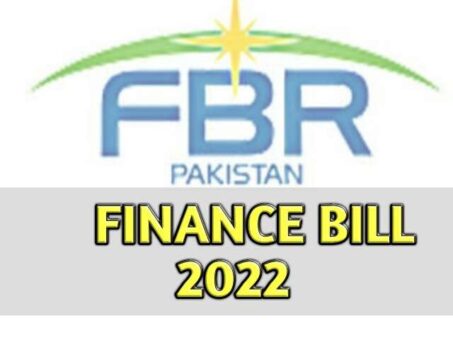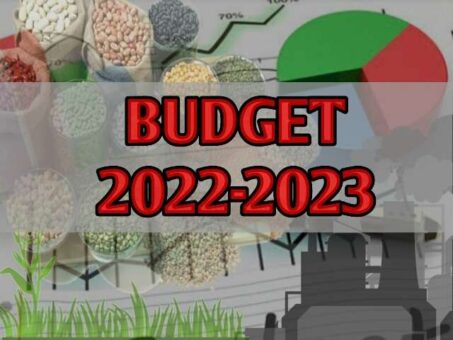ISLAMABAD: Following are salient features of amendments made to Customs Act, 1969 through Finance Bill, 2022.
GUIDING PRINCIPLES
(a) Remove anomalies in cascading structure of tariff.
(b) Promote and protect domestic industry by introducing targeted interventions.
(c) Rationalizing tariffs on industrial raw materials / intermediate goods.
READ MORE: Budget 2022/2023: Salient features of sales tax
ADOPTION OF WCO HS – 2022 VERSION:
The World Customs Organization (WCO) updates its Harmonized Commodity Description and Coding System (HS) after every five years to accommodate modern developments and changing trade patterns. The last HS version was updated in 2017. The current amendments to the HS nomenclature have entered into force since 1st January, 2022. Pakistan being a signatory to the HS Convention has obligation to adopt the HS 2022 version. Since, these amendments are required to be incorporated in the First Schedule to the Customs Act, 1969 (Pakistan Customs Tariff), therefore, Pakistan adopted the same by incorporating all of its latest amendments introduced in earlier nomenclature / HS codes in Pakistan Customs Tariff by the process of addition / deletion and creation of local PCT codes, accordingly. It will be effective from 1st of July, 2022.
READ MORE: Budget 2022/2023: Salient features of income tax
INDUSTRIAL RELIEF MEASURES:
1. To incentivize packaging industry, CD and ACD on various tariff lines pertaining to aluminum, polymers of ethylene, BOPP etc. have been downward rationalized.
2. Reduction in CD and ACD on 10 tariff lines pertaining to direct and reactive dyes.
3. To incentivize agricultural sector and farmers, customs duty exemption extended further to Farm Mechanization and Logistics including agricultural machinery pertaining to irrigation, drainage, harvesting / post- harvest handling & processing, plant protection equipment as well as machinery, equipment and other capital goods for miscellaneous agro based set ups in Sr. 1, 2 and 3 of Part-I of Fifth Schedule.
4. To incentivize Coating Industry, CD and ACD have been exempted on Aluminum paste and powder and CD and ACD have been reduced on glycerol crude and glycerol.
5. To incentivize manufacturers of filters other than automotive, CD and ACD have been reduced on their raw materials i.e, Adhesive, Epoxide resins, Filter media/ paper, Non-woven fabric media and Steel plates / sheets of prime quality.
6. To incentivize footwear industry, customs duties have been reduced on different categories of other woven fabrics and artificial flowers / foliage of other materials.
READ MORE: Pakistan allocates Rs800 billion for FY23 PSDP
7. To incentivize LED lights and bulbs manufacturers customs duties have been exempted on import of 05 more items i.e, Aluminum Electrolytic capacitor, SMT Electrical Transformer, aluminum alloy sheet, Tantalum capacitors (DIP/SMD) and Other inductors, small transformer, coil (DIP/SMD). Furthermore, the scope of exemption has also been extended for the manufacturers of Parts of LED light and Bulbs.
8. Tariff structure on the different tariff lines related to MDF / HDF have been rationalized evenly.
9. To encourage local manufacturers of brush ware, customs duties have been exempted on import of Poly-butylene terephthalate.
10. CD & ACD on import of Stamping foils have been exempted for manufacturing of Optical Fiber Cable.
11. Tariff structure on import of Synthetic filament yarn, monofilament, staple fibers of polypropylene has been rationalized to resolve the cascading issues.
12. To encourage export oriented industry, CD and ACD have been exempted on import of Guts, bladders and stomachs of animals etc.
13. Reduction in CD and ACD rates on import of Plywood, veneered panels & similar laminated wood, poly (methyl methacrylate), cyanoacrylate.
14. Extension in scope of concession on import of organic composite solvents and thinners for the manufacturers of Dibutyl Orthophthalates.
15. Rationalization of Tariff structure on import of IV Leaves extract powders and exemption of CD & ACD on its raw materials i.e, other plants and parts of plants from 3 per cent CD and 2 per cent ACD.
16. Exemption of customs duties on import of membrane for filtering / purifying water from 16 per cent CD & 4 per cent ACD.
17. Exemption of customs duties on 03 different raw materials for first aid bandages manufacturing industry from 5 per cent.
18. Reduction of customs duties on import of flavouring powders for food preparation for snacks manufacturers.
19. Exemption of CD & ACD on raw materials of aluminum conductor composite core manufacturers.
20. Exemption of CD & ACD on import of raw materials of paper sizing industry and chlorinated paraffin wax industry.
READ MORE: Federal government presents budget 2022-2023
RELIEF FOR COMMON MAN:
21. To keep the prices of medicines stable in the market and to encourage local manufacturing of pharmaceuticals, customs duties have been exempted on 26 more APIs and on one drug “Grafalon”.
22. Irisvision is for low vision individuals of all ages and with this gadget low vision persons can read and write easily, therefore customs duties have been exempted on import of Irisvision Device with its complete components.
REVIEW OF RD REGIME:
23. 10 per cent CD rate on import of motor spirit has been replaced with 10 per cent RD.
24. Continuation of 20 per cent RD on import of Disodium Carbonate to protect the local industry.
25. To encourage the vendor industry, RD has been reduced on import of case hardening steel from 30 per cent to 20 per cent.
26. Withdrawal of 15 per cent RD on import of Chrome yellow.
27. 10 per cent RD has been levied on import of Other paper, paperboard, cellulose wadding and webs of cellulose fibres to protect the local industry.
28. Withdrawal of RD exemption available on import of High Carbon Wire Rod.
29. RD on import of optical fibre cables has been increased from 10 per cent to 20 per cent to encourage the local manufacturers.
READ MORE: Tax exemptions cost Rs1.76 trillion in FY22
LEGISLATIVE CHANGES:
1. The definition of smuggling has been widened to include smuggling of essential commodities out of Pakistan through bordering and coastal areas to curb this menace.
2. To facilitate trade and industry, changes have been incorporated to align the provisions of the Customs Act, 1969 with the Pakistan Single Window (PSW) Act, 2021, providing platform for integration of other government agencies.
3. The timeline to finalize the provisional assessment has been reduced from existing nine months to four months to facilitate trade and avoid delay in realization of government revenue.
4. Powers regarding extension in warehousing period have been delegated to Additional Collector of Customs to facilitate trade by expediting grant of requests for extension.
READ MORE: Share of domestic electricity consumption declines
5. Option to change consignee name in relation to frustrated cargo has been provided to address the issue of port congestion.
6. Pecuniary jurisdiction of Additional Collector and Deputy Collector has been increased to rationalize the workload of adjudicating authorities and quick disposal of legal cases.
7. To reduce the cost of doing business and rationalize fees charged by the terminal operators, enabling provision has been provided for determination of various charges by customs authorities.
8. Provision has been incorporated to indemnify the officers of provincial governments for their actions taken in good faith to prevent the smuggling of essential commodities under the Customs Act, 1969.

